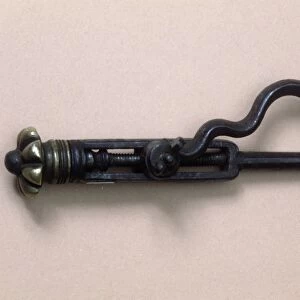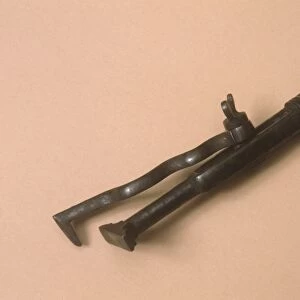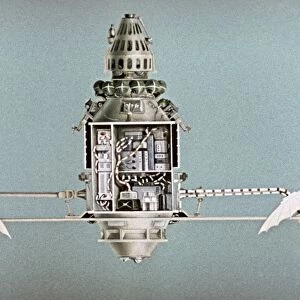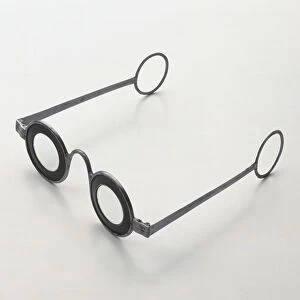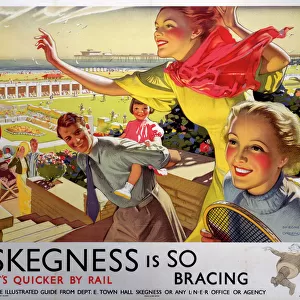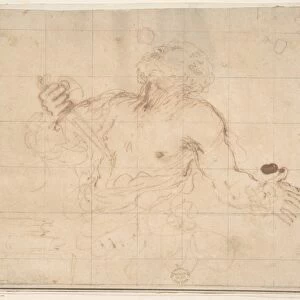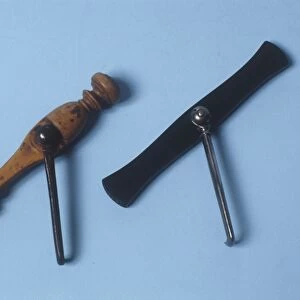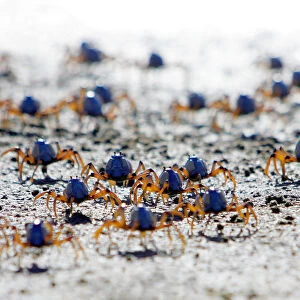Fine Art Print : Pelican tooth extractor, circa 1750 C017 / 8382
![]()

Fine Art Prints from Science Photo Library
Pelican tooth extractor, circa 1750 C017 / 8382
Adjustable pelican, tooth extractor, with screw mechanism. Pelicans are an early type of dental forceps, so named due to their claw which was thought to resemble a pelicans beak. Tooth extraction is the earliest known dental procedure, it was used as a last-resort cure for toothache. Pelican extractors originated in the fourteenth century and by the 1500s they had become the most popular tool for tooth-drawing amongst barber surgeons and practitioners. No two alike, each pelican extractor would have been individually designed to order. This example is English and dates from around 1750
Science Photo Library features Science and Medical images including photos and illustrations
Media ID 9212027
© SCIENCE PHOTO LIBRARY
1700s 1750 1750s 18th Century Adjustable Antique Beige Background Dental Dentistry Device Devices Eighteenth Century Instrument Instruments Pelican Tool Tools Tooth Drawing Tooth Extraction Tooth Extractor Tooth Extractors Pelicans
21"x14" (+3" Border) Fine Art Print
Discover the captivating world of historical medical tools with our Fine Art Prints collection from Media Storehouse. This exquisite piece showcases the Adjustable Pelican Tooth Extractor, circa 1750, from the Science Photo Library. This intricately designed dental instrument, modeled after the pelican's beak, was an early type of dental forceps. Its screw mechanism allowed for precise tooth extraction, making it a vital tool in dental care during the 18th century. Add this stunning print to your collection and bring a piece of historical medical innovation into your home or office.
21x14 image printed on 27x20 Fine Art Rag Paper with 3" (76mm) white border. Our Fine Art Prints are printed on 300gsm 100% acid free, PH neutral paper with archival properties. This printing method is used by museums and art collections to exhibit photographs and art reproductions.
Our fine art prints are high-quality prints made using a paper called Photo Rag. This 100% cotton rag fibre paper is known for its exceptional image sharpness, rich colors, and high level of detail, making it a popular choice for professional photographers and artists. Photo rag paper is our clear recommendation for a fine art paper print. If you can afford to spend more on a higher quality paper, then Photo Rag is our clear recommendation for a fine art paper print.
Estimated Image Size (if not cropped) is 53.3cm x 35.5cm (21" x 14")
Estimated Product Size is 68.6cm x 50.8cm (27" x 20")
These are individually made so all sizes are approximate
Artwork printed orientated as per the preview above, with landscape (horizontal) orientation to match the source image.
EDITORS COMMENTS
This print showcases a remarkable piece of dental history - the Pelican tooth extractor, circa 1750. This adjustable pelican, with its intricate screw mechanism, was an early type of dental forceps that derived its name from the resemblance of its claw to a pelican's beak. Tooth extraction, the oldest known dental procedure, was considered a last-resort remedy for excruciating toothaches. Originating in the fourteenth century and gaining popularity among barber surgeons and practitioners by the 1500s, each pelican extractor was uniquely crafted to order. No two were alike. The featured English example dates back to around 1750 and serves as a testament to both craftsmanship and innovation during this period. Against a beige background, this antique instrument stands as a tangible link between dentistry's past and present. Its presence evokes curiosity about the practices of early dentists in England during the eighteenth century. As we gaze upon this historical device, we are reminded of how far dentistry has come since then. Today's advanced tools and techniques have revolutionized oral healthcare, rendering such extractors obsolete relics from another era. This print not only captures an intriguing artifact but also invites us to reflect on our gratitude for modern advancements in dental care while acknowledging those who paved the way centuries ago.
MADE IN AUSTRALIA
Safe Shipping with 30 Day Money Back Guarantee
FREE PERSONALISATION*
We are proud to offer a range of customisation features including Personalised Captions, Color Filters and Picture Zoom Tools
SECURE PAYMENTS
We happily accept a wide range of payment options so you can pay for the things you need in the way that is most convenient for you
* Options may vary by product and licensing agreement. Zoomed Pictures can be adjusted in the Cart.





